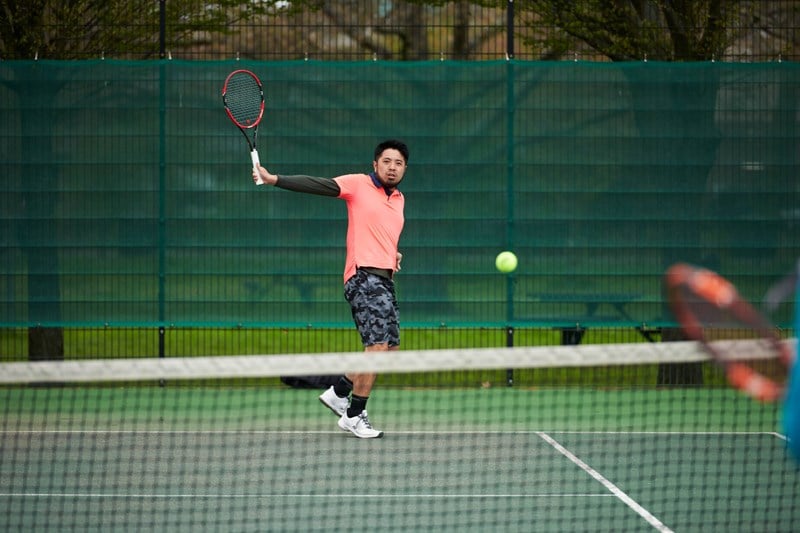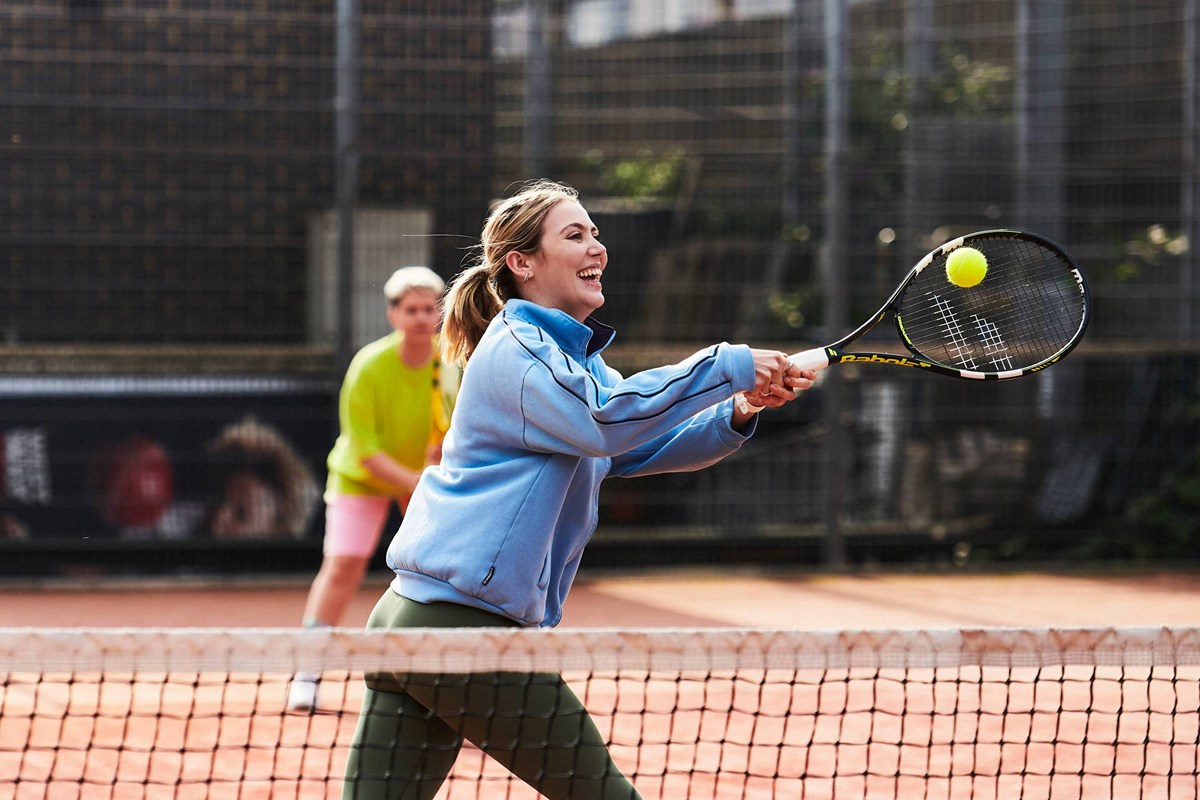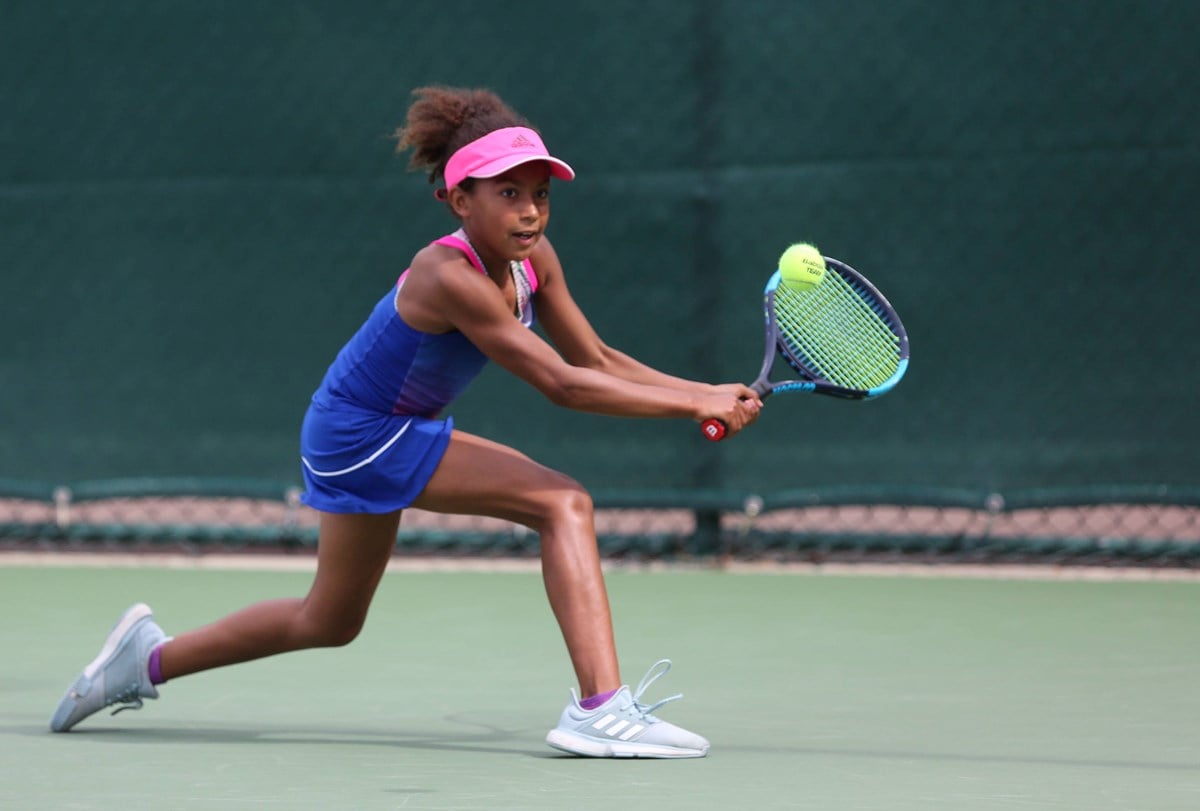Beginner's guide
Backhands - Essential steps when getting started

A backhand is usually the shot you play when the ball lands on your non-dominant side of the court. LTA expert coach Matt Smith is on hand with the four steps to playing better backhands to help improve your rallies.
Step one – one or two hands?
There are two ways you can hold the racket when you’re playing a backhand – double or single handed.
For beginners, we recommend that holding the racket in two hands can give you more stability in your shots.
To play a double handed backhand, hold the racket with your dominant hand at the bottom of the racket and then place your non-dominant hand above it on the grip. As far as what type of grip to use, just keep it comfortable to start.
Your other option is to play a single handed backhand, which can feel more natural to start with but will likely take a bit more time to master.
To play a single handed backhand, hold the racket in a comfortable grip – so that the strings can point down the court towards your partner.
Step two – be ready

Be in a good athletic ready position with the racket in-front of you, on the balls of your feet ready for the incoming ball.
Think of it like a goalkeeper ready before a penalty. You then read the incoming ball with your eyes and react to it as quick as possible.
Tennis is a tricky sport where there are a lot of moving parts (like the incoming ball, outgoing ball, you and your opponent) so you need to be ready to move and get ready.
Step three – get into position
Turn sideways-on, on your non-dominant side, and get your feet into position before the ball passes over the net or bounces on your side of the court.
With the racket in one hand or two (depending on your preference) bring it back across your body.
Top tip: To help turn your body consistently and get in the right position, use your dominant shoulder to track the incoming ball before it bounces.
Step four – keep the contact point in front

After the ball bounces, you want to try and hit it as it reaches between knee and waist height.
The big thing to remember is to hit the ball in front of you. This will allow you to get your weight behind the ball and then your body weight will help the momentum of your shot.
Step five – swing through the ball
Your swing when hitting the ball will look different if you play double or single handed backhand.
Holding the racket in two hands – once you’ve made contact with the ball, swing the racket through, over your shoulder until your non-dominant elbow is pointing down the court.
For single handed after you hit the ball at your contact point, you’ll swing the racket through and open up your chest.
The longer your swing, the longer the shot is going to be, and you’ll generate more power. This is something you can start to think about as you get more confident.
Best to start small and build up with consistency.
Bonus tip: After you’ve hit the shot, you want to recover back into a good position ready for the next ball. This tends to be back to the middle of the baseline, ready, and you repeat the above steps.
